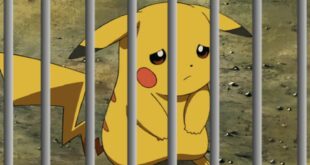‘Any woman who says she’s happy to be childless is a liar or a fool’: Take it from a woman who’s given up her dreams of motherhood at 44, says KATE SPICER
Kate Spicer
Daily Mail
August 8, 2013

Not so long ago women without children, like me, were pitied. But now the world has caught on to the fact that, on the surface at least, we don’t have such a hard life.
Take this week: I spent a few days on a friend’s sailing boat in Italy, sun-bathing, drinking rose, talking, laughing and dancing until dawn.
Back at home after my break, I slept for hours, ate breakfast in bed, and stayed there reading until well after lunchtime. I couldn’t be bothered to cook, so I went out for a Thai meal, bumped into a friend, went to the cinema and then out for drinks.
At the weekend, I stayed with friends with children in the countryside where I found money worries, toddler tantrums, conflicted step-parental relationships, and an all-consuming fractious energy caused by Mum and Dad having not slept more than five hours a night for months.
Unlike the child-free trip to Italy, where we drank for pleasure, this time wine was part of the coping process.
The children were lovely and polite – to me. But anyone could see that underneath the outward manners and helpfulness, Tolstoy’s maxim applied: ‘Happy families are all alike; every unhappy family is unhappy in its own way’.
Earlier this week, a broadsheet newspaper ran a triumphalist piece by a 42-year-old who claimed she was wilfully and joyfully childfree. The writer was one of a growing number of women, she claimed, who believe having it all means not having a baby. I call them the Motherhood Deniers.
To an extent, that writer is right. Unburdened by motherhood and the personal sacrifice it requires, a woman can dedicate herself to her career and create a home with all the delicate ornaments, sumptuous fabrics and hard edges that have no place in a family environment.
Where a decade ago, just one in nine women remained childless at 45 and were considered rather peculiar at that, now that figure is closer to one in four. For women with a university education, like me, that figure rises to 43 per cent – an extraordinary figure which signifies a seismic social change.
Among my friends, relatively ordinary women as opposed to media types, I am not alone in being childless. And there are many more examples in the realms of the super-successful, from Oprah Winfrey and Cameron Diaz to Helen Mirren and Theresa May.
Of 192 female directors among 1,110 FTSE 100 board members, it is estimated that just under half of them are childless.
I had an intern recently, a 21-year-old Oxford graduate, who told me confidently she never wanted kids because it would get in the way of her career. I told her she was mad. While a child-free life looks fun on Facebook, no number of career highs, nights at the theatre, weekends away or adult pleasures can disguise the fact that it feels – there is no other word – empty.
Between today and the end of my life, I hope there are a few more decades. But, as time goes by, the idea of dying without children feels unnatural and sad.
Statistics do not reveal whether the 43 per cent of educated women who are child-free are so by choice or by circumstance, but I believe the Motherhood Deniers, waving the flag for the childless life, remain in the minority. Admittedly a far more confident, glamorous, and witty minority than they once were, but a minority nonetheless.
For the rest of us, childlessness is a source of sadness and regret. Most of those 43 per cent will have gone through fertility hell, or never met the right guy, or left it too late, or have any number of unhappy stories.
Few would say: ‘I don’t want, and never wanted, children.’

Both Theresa May and Helen Mirren – frequently held up as role models for the childless – say they weren’t against having them. Mirren has said: ‘I kept thinking it would be, waiting for it to happen, but it never did.’
May put it thus, ‘It just didn’t happen… you look at families all the time and you see there is something there that you don’t have.’ Which is pretty much how I feel; sad but philosophical. I was in charge of my life. I should have put having a child first. As a young girl, having a family was something I dreamed of and assumed would happen. But then the education system swallowed me up, and nothing in it tells you that having a baby any time soon is a good idea.
My parents’ divorce put me off too. I had ants in my pants during every relationship until I finally met someone I could trust at the age of 40. He wasn’t going to start making babies straight away. So I waited. I was 43.
What then but to rush into the arms of the fertility industry brandishing my credit card? I did, but it didn’t work. Now, at 44, adoption is always at the back of my mind, but there is some distance to go before I feel my relationship will be ready to take on that challenge.
Motherhood Denier, I am not. If I could teach a class to 16-year-olds about the importance of having a baby while you’ve still got energy and fresh eggs in your ovaries, I would.
I might get them to talk to my friend, Penny, 45, who has had to admit that she has missed the motherhood boat. ‘My mother kept saying to me, ‘Quick, have a baby’.
‘When she died, mixed up with all the other grief was that realisation that I was the end of the line. Ten years on, I can barely think about that, it makes me too sad. I spent a lot of money on fertility treatment, but in the end, I realised I didn’t have the energy to be a mother. My lifestyle is good, it’s a sort of compensation.’
 Daily Stormer The Most Censored Publication in History
Daily Stormer The Most Censored Publication in History


